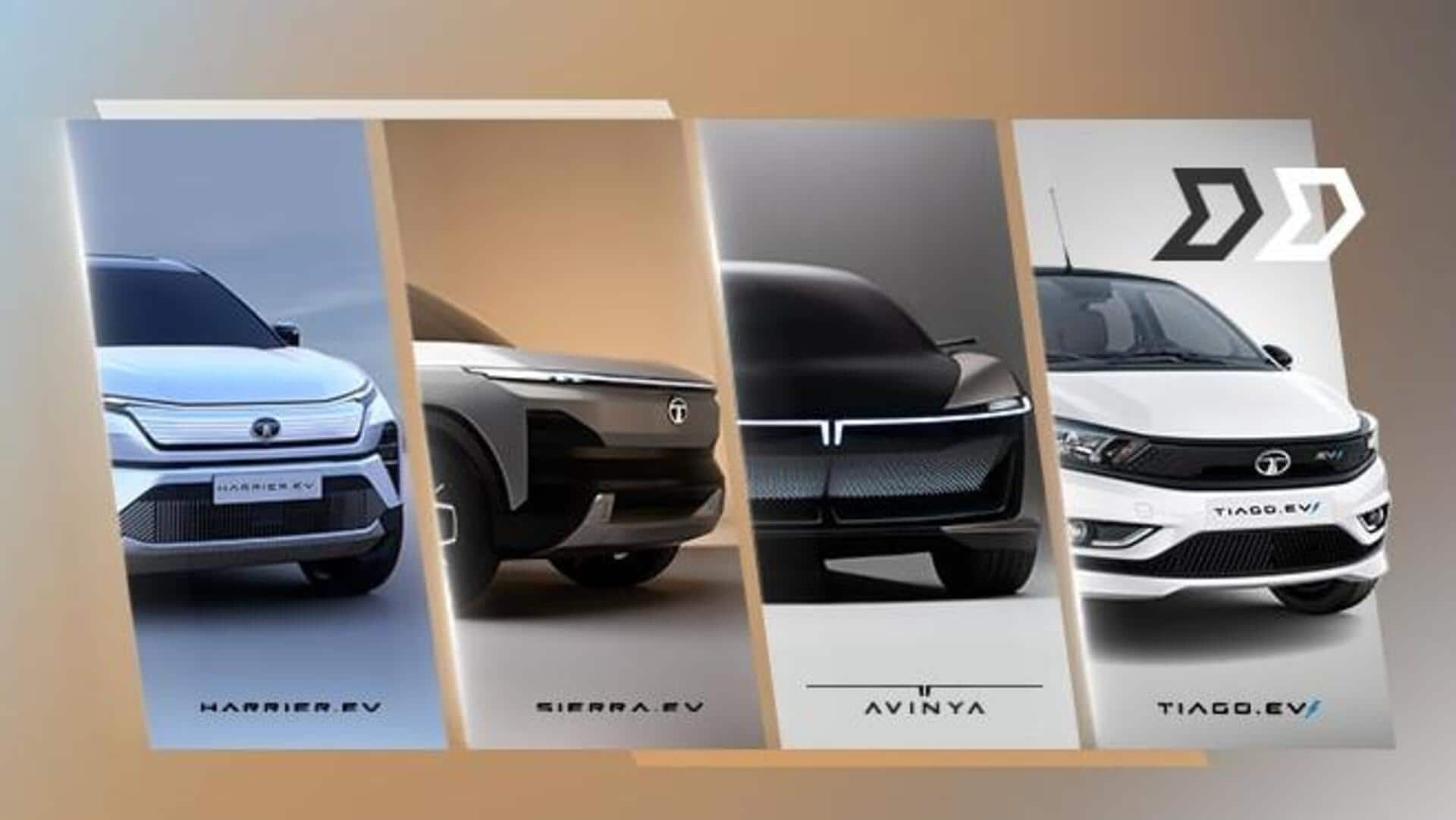
Tata Motors to launch EV-focused dealerships in India
What's the story
Tata Motors is set to revolutionize India's electric vehicle (EV) market with the launch of exclusive dealerships under the 'Tata.ev' brand and a big investment in battery models, per Bloomberg.
The company aims to create a distinct brand philosophy for EVs, while also exploring international strategies, including exporting battery-powered cars, said Shailesh Chandra, Managing Director of Tata Motors's passenger vehicle and electric mobility business, at a roundtable with journalists in New Delhi.
Details
Ambitious investment plans and strong sales growth
Tata Motors is sparing no effort to capture a significant share of the EV market. The company has ambitious investment plans, with a commitment to invest approximately $2 billion in battery-powered models by 2027.
Recent sales figures show promising growth, with 4,613 electric passenger vehicles (including Tigor, Nexon, and Tiago EV models) sold within the country last month.
This represents a remarkable 65% increase compared to the previous year, as reported by the Federation of Automobile Dealers Associations of India.
What Next?
Exploring international expansion
Tata Motors is not limiting its electric ambitions to the domestic market alone.
While specifics were not disclosed, the company is actively finalizing an international strategy that could potentially include the export of battery-powered vehicles to other markets.
This move aligns with Tata's vision to not only be a dominant player in the country but also make a global impact in the electric vehicle arena.
Insights
Building a robust EV ecosystem
Tata Motors is strategically expanding its local supply chain, reported Bloomberg. A notable development in this regard is the construction of a battery manufacturing facility in the western state of Gujarat.
This facility is poised to have an impressive output of 20 gigawatt-hours, a significant boost to the production of lithium-ion batteries in India.
Other companies, including Ola Electric and Reliance Industries, are also venturing into battery production in the country.
What's Next?
Navigating changing regulations and diesel transition
With the government's increased focus on cleaner transportation, automakers are under pressure to reduce diesel vehicle production.
Transport Minister Nitin Gadkari hinted at potential tax hikes on diesel vehicles, although he later clarified that such a proposal wasn't actively being considered.
Tata Motors remains adaptable in response to evolving regulations and foresees a continued decline in diesel vehicle sales with the introduction of the Bharat Stage 7 emissions rule.
Currently, diesel models make up 16% of Tata's passenger vehicle portfolio.